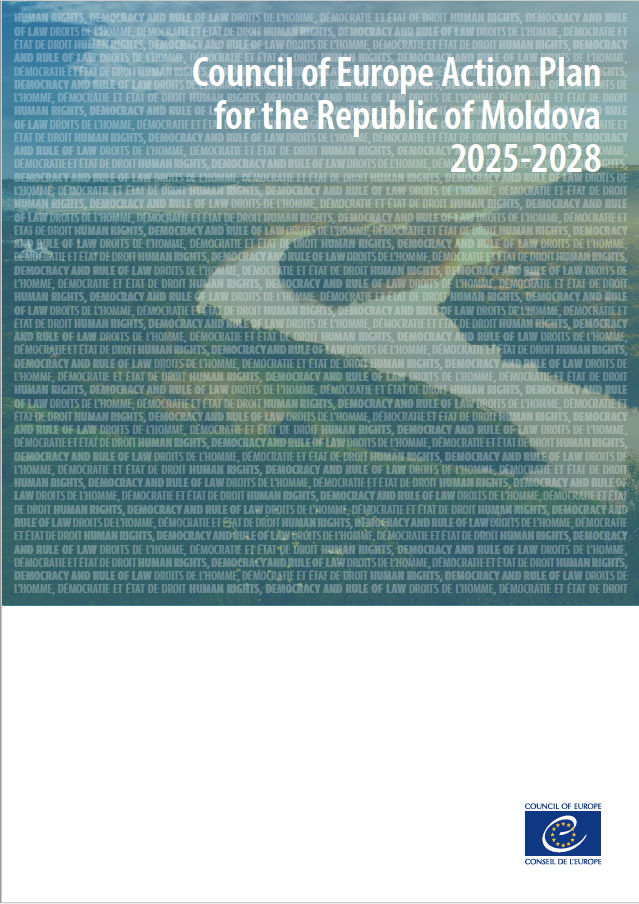In a report published today, the European Commission against Racism and Intolerance (ECRI) praises the Moldovan authorities for their efforts to improve the equality and hate crime legislation, and better integrate migrants. However, further action is needed to address hate speech and hate crime as well as inequalities, including against Roma. (See report in Romanian).
Since 2018, when it last evaluated the country, ECRI finds that the Republic of Moldova has taken some positive steps. Grounds of national origin, citizenship, sexual orientation and gender identity were added to the open-ended list of protected grounds in the Equality Act. The authorities have launched several initiatives to combat bullying, which is still a major problem in Moldovan schools. Progress has also been achieved in securing better preschool and school attendance of Roma pupils.
A number of legislative developments were noted in the area of combating hate speech, including the introduction of several offences and misdemeanours, as well as the notion of “grounds of prejudice” in the Criminal and Misdemeanour Codes. Bias motivation was also introduced in hate crime recording.
The report welcomes the efforts to improve the integration and inclusion of migrants, notably by opening integration centres for foreign nationals in Chișinău, Bălți and Cahul, which provide migrants with easily accessible guidance. ECRI also praises the Republic of Moldova for the exceptionally warm welcome given to people displaced as a result of Russia’s war of aggression against Ukraine, particularly since the country has received the largest number of such persons in relation to population size.
However, despite the progress achieved, ECRI expresses concern about several shortcomings and addresses 15 recommendations to address them.
Intolerance and discrimination against LGBTI people persist in the country. ECRI notes with concern that same-sex couples do not yet enjoy any kind of legal recognition. It also calls on the Republic of Moldova to develop the legal framework to explicitly regulate the conditions and procedures concerning legal gender recognition and establish clear guidelines on the provision of gender-affirming health care.
Online hate speech, particularly on social networks, is a growing concern. Public figures such as politicians very seldom condemn hate speech immediately and publicly. Hate crime cases continue to be underreported and the application of criminal law provisions to investigate these cases remains insufficient. ECRI therefore recommends the authorities to take effective action to raise awareness amongst the general public about the legal framework related to hate speech and the remedies available to victims. Further action should also be taken to ensure that all alleged cases of hate crimes are effectively investigated and prosecuted, by consistently taking into account any possible bias motivations from the outset of the investigation and in any subsequent criminal proceedings.
ECRI notes that the Roma population continues to suffer from inter-related problems of poverty, discrimination, and stigmatisation and makes several recommendations to address them. As a matter of priority, ECRI recommends that the authorities significantly increase the number of community mediators, develop a suitable policy for their recruitment and retention and ensure they are provided with adequate working conditions. It also calls on the authorities to properly fund and implement the Programme for the Support of the Roma Population (2022-2025).
The Equality Council and the Ombudsman still do not enjoy full financial independence. Despite an increase in staff, their financial and human resources are still insufficient to carry out all their functions. ECRI recommends that the Moldovan authorities ensure that both bodies receive the necessary financial and human resources to carry out their mandates adequately.
Finally, ECRI strongly encourages the authorities to ratify Protocol No.12 to the European Convention on Human Rights and positively notes their commitment to do so by the end of 2024.
ECRI and the Republic of Moldova
* * *
The European Commission against Racism and Intolerance (ECRI) is a unique human rights monitoring body which specialises in questions relating to the fight against racism, discrimination (on grounds of “race”, ethnic/national origin, colour, citizenship, religion, language, sexual orientation, gender identity and sex characteristics), xenophobia, antisemitism, and intolerance in Europe; it prepares reports and issues recommendations to member States.





